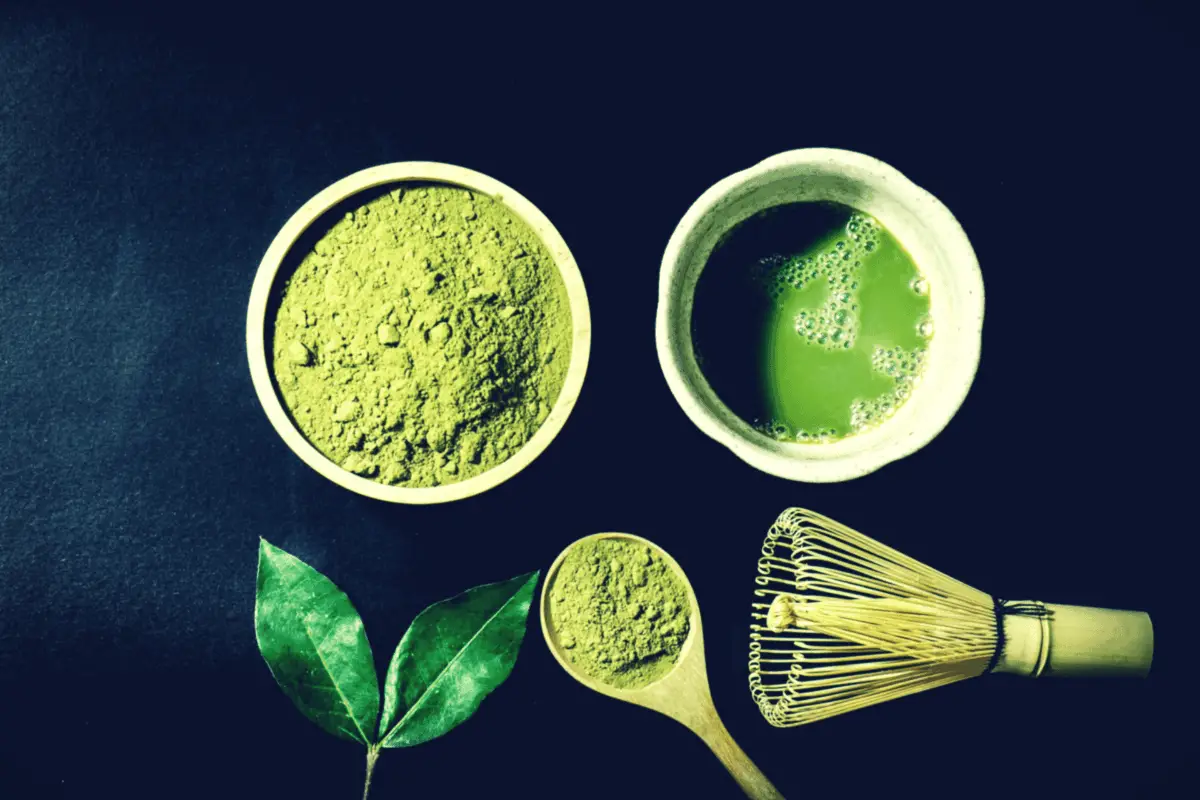Sharing is caring!
Last Updated on October 19, 2024
You probably have been seeing a lot of Green tea all over the internet, with promises of many health benefits. Matcha is a type of green tea but is grown protected from sunlight, and green tea like your regular coffee contains caffeine. However, unlike other teas, matcha is consumed wholly, which raises concern for the amount of caffeine found in this magical tea.
This article addresses how much caffeine does matcha green tea powder have and its health benefits.
How Much Caffeine is In Matcha Tea?
Matcha tea contains about 8.8 mg/oz of caffeine, compared to a brewed coffee which has about 20.4 mg/oz of caffeine (depends on brewing methods and type of coffee), the caffeine level in matcha is just about half of the amount found in brewed coffee. For most, half is a decent amount of caffeine consumption and definitely a healthier alternative to coffee and black tea.
Another factor that might determine the caffeine content is the amount of tablespoon served. Matcha serving is measured by teaspoons or grams. So, the amount of caffeine in a particular serving is dependent on whether you used ½ tsp or 1 tsp, which will roughly be equals to 35 to 70 mg of caffeine dissolved in 8oz of water.
Lastly, the amount of caffeine in matcha may have slight variations depending on the variant and potency of matcha used. For instance, thick Matcha is produced with double potency of the regular matcha powder. It is therefore expected to have twice the amount of caffeine present in regular matcha.
Do I Need to Be Worried About Matcha Caffeine Level?
Matcha is a powder-form green tea that grows in 90% shade. As a result, the amount of caffeine and antioxidants present in the plant is more than that of the usual teabags- which contain only the brewed substance. In fact, the caffeine you find in a regular green tea bag is 31.8 mg, compared to 70 mg found in matcha. So, should you be worried about the amount of caffeine you are consuming when taking matcha?
It is safe to say no. This is because the perfect combination of amino acid content, catechins (a type of natural phenol and antioxidant) and caffeine found in matcha make for a balanced and healthier consumption compared to coffee or black tea.
Moreso, matcha tea is consumed with the leaves still intact, although, ground into a powder form. This means that you are getting more than just the brewed substance. Hence, the likely adverse effects of the caffeine present are counteracted by the soothing L-Theanine amino acid and other antioxidants found in matcha.
In fact, a study argues that Matcha actually improves your metabolism by up to 35% – 43%.
Green Tea, But With Great Benefits!
Apart from the obvious advantage, Matcha also comes with other great benefits too! These include:
Caffeine Side Effects
Although caffeine content in matcha tea is lower than in coffee, pregnant women, children, and persons with cardiovascular disease and anxiety disorders should avoid its use.
Conclusion
In conclusion, caffeine isn’t bad when taken in moderate amounts. You will be surprised to find caffeine acting as a natural mild stimulant in some plants, fruits, and crops like beans and nuts. Ultimately, the choice to decide whether the caffeine level in matcha is healthy enough for you remains with you. Though, you can try it out, see how your body reacts to it before making the decision.
Barbara is an environmental activist and sustainability advocate who loves living green and sustainable. She firmly believes in reducing her carbon footprint and has been making great strides towards achieving this goal. Barbara is a vegan and avid recycler and has been actively involved in community gardens and other green initiatives. She is passionate about spreading awareness about the importance of living in a sustainable and eco-friendly manner. Barbara is always looking for ways to make a difference in her community and beyond. She is a huge advocate for preserving nature and the planet for future generations.
Sharing is caring!


